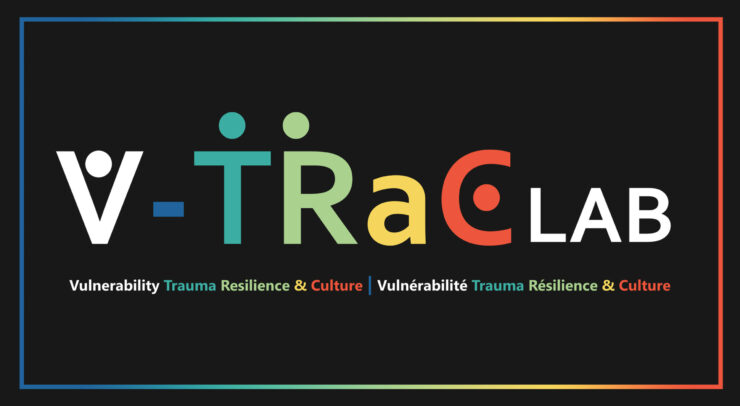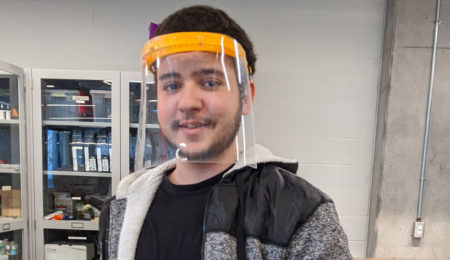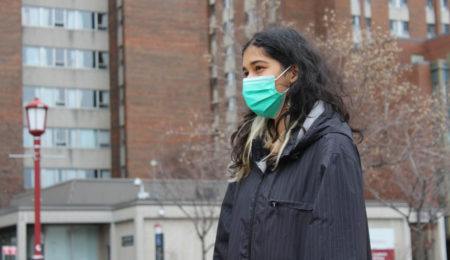The third lecture in a six-part series emphasizes trust during public health crises
On Jan. 19, professors and researchers from the University of Ottawa, the University of Western Ontario, York University, the University of Hong Kong and more concluded part three of their latest lecture series.
This lecture series, Infectious Disease Outbreaks: Social Sciences at the Heart of Surveillance, Prevention and Intervention Strategies, is held over Zoom and promoted by the Vulnerability Trauma Resilience & Culture Lab (V-TRAC Lab).
During the third lecture, researchers focused on lessons learned from the Ebola outbreak in 2014 and explained how it could have been better managed by foreign healthcare professionals who travelled to Africa. They also explained how this knowledge is applicable to the current COVID-19 pandemic.
The conference featured presenters with unique perspectives and testimonies such as Dr. Mandy Kader Konde from the University of Conakry, Dr. S. Harris Ali from York University, and Dr. Shelley Lees from the London School of Hygiene & Tropical Medicine.
The University of Western’s Dr. Elysée Nouvet said the purpose of this meeting is to “reflect and provoke discussion on lessons learned from Ebola that can inform current and future strategies to address both COVID-19 and future pandemics or outbreaks.”
In his presentation, Dr. Konde explained how community-based initiatives help counter major outbreaks.
He said that the Ebola virus was eventually contained because of “community-based initiatives, [that included] the direct involvement of people [within the affected communities].”
Community-based initiatives involved individuals who were trained by healthcare workers to identify new Ebola cases. These individuals also learned to raise awareness about Ebola and spread knowledge about the medical treatments and services available to help stop the spread of the disease.
“During the early initial response to Ebola, many [West Africans] had become deeply suspicious about public health interventions, [because of their] forced quarantines, [and] prohibition of [cultural practices],” said Dr. Konde.
Konde explained that when healthcare workers urged Ebola patients to separate from their families, patients grew wary of the advice. This is because foreign healthcare workers ignored the communities’ values and cultural systems.
So, to create a sense of trust, healthcare workers relied on community-based initiatives. And this played “a key role in changing peoples’ risk perceptions. And raising their levels of trust.”
Dr. Ali supports Konde’s ideas and provides an example of the dangers of misinformation. He said “there was a deficit in communication” when Ebola interventions started in West Africa. One issue was that public figures in Guinea’s capital spread rumours about foreign health care professionals.
For example, people believed that “the doctors were coming to kill [the people in Guinea’s communities].” So, in response to this rumour, villagers in Guinea murdered several healthcare workers in 2014.
The connections between Ebola and COVID-19
Like during the Ebola outbreak, the dissemination of information to communities about the virus and medical treatments is a primary focus.
In Dr. Lees’ presentation she said “COVID-19 vaccines have been framed as the solution to end the pandemic. [And] a number of vaccine candidates are in development.”
“According to the World Health Organization, 15 vaccines are undergoing clinical trials — with highly promising results.”
However, according to Lees, there are some groups that are skeptical of COVID-19 vaccines. And many people have “concerns [about] the sufficient testing and safety” of these vaccines.
For this reason, “it is important to identify community dynamics” before the vaccines are delivered. If not, there is a possibility that [certain] communities [around the world] refuse vaccines and violently push-out healthcare workers.”
This means that healthcare workers must “understand [the] contextual determinants” that influence the level of trust a community has with regard to the COVID-19 vaccines.
Healthcare providers and social workers must acknowledge a group’s apprehensions about the vaccine. This lets social workers focus on communities that need education about how COVID-19 spreads and how it is treated.
Part four of the Infectious Disease Outbreaks conference is scheduled on Feb. 16. Those who would like to attend this Zoom event can send a request to vtrac@uottawa.ca.





